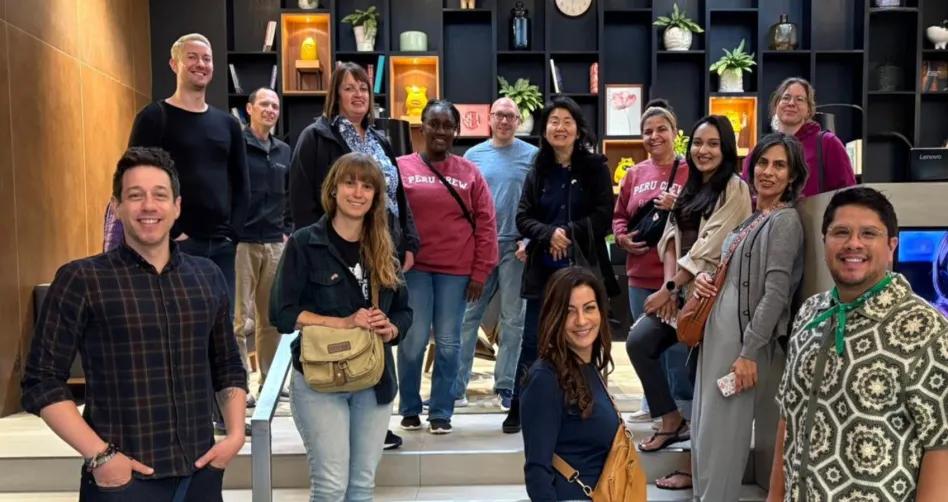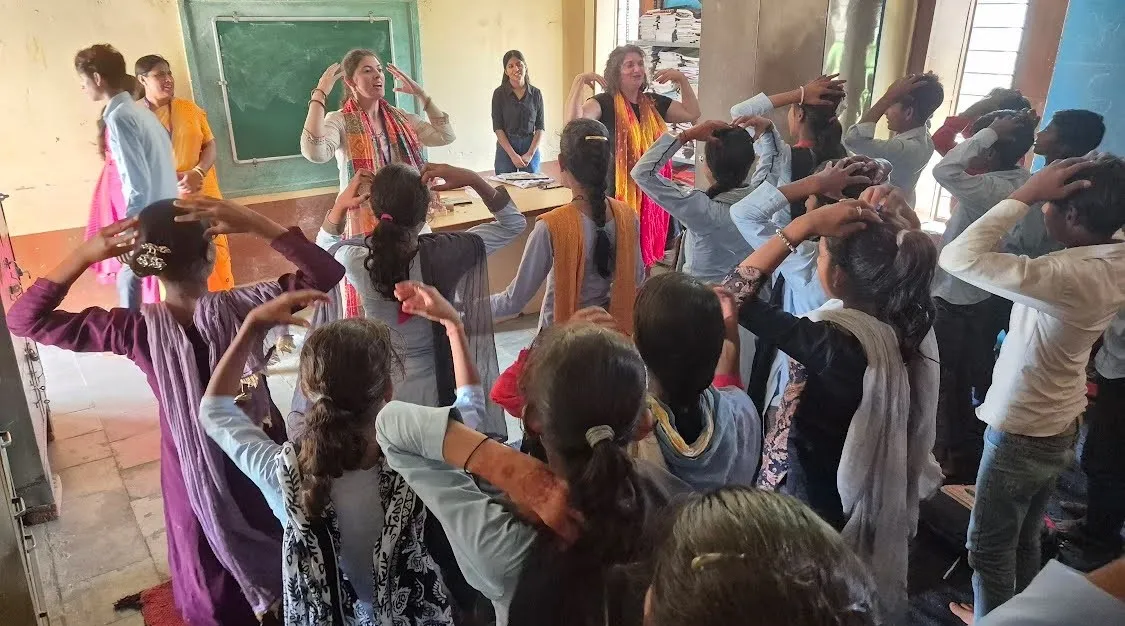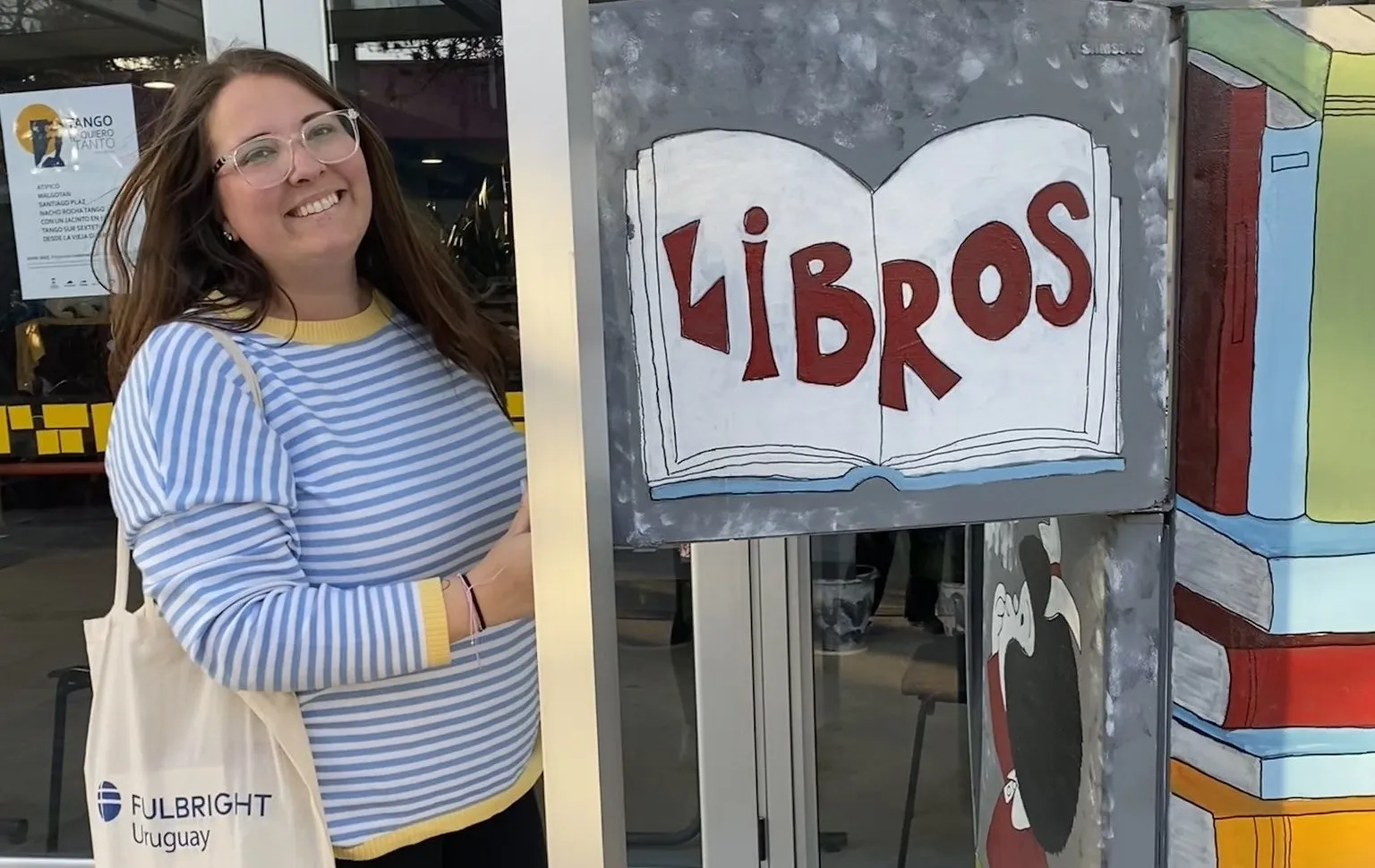Fulbright Teachers for Global Classrooms Program
K–12 educators from elementary, middle, and high schools in the United States
Brazil, Colombia, Ghana, India, Indonesia, Morocco, Peru, Philippines, Romania, Senegal, Taiwan, Uruguay
Approximately 12 months, including 2 to 3 weeks of travel abroad

The Fulbright Teachers for Global Classrooms Program is a yearlong professional learning opportunity and short-term exchange for elementary, middle, and high school educators from the United States to develop skills to prepare students for a competitive global economy. The program equips educators to bring an international perspective to their schools through targeted training, experience abroad, and global collaboration.
Program Description
Participants in the Fulbright Teachers for Global Classrooms Program will:
- Complete a rigorous, semester-long online course focused on best practices in global education.
- Gather for an in-person professional development workshop in Washington, D.C.
- Travel abroad for two to three weeks to immerse themselves in another country’s culture and education system.
- Create a global education guide that serves as a resource in their local community to share the skills, experiences, and resources they have developed throughout the program.
- Timeline & Activities
Timeline
Applications typically open in December and close in February. Applicants can expect to be notified in the summer.
Program activities begin in September and follow the schedule below.
Program Activities
Online Global Education Course (September - December)
The online global education course combines simultaneous and self-paced coursework during the fall semester. Participants should be prepared for a thoughtful, content-rich, and rigorous experience with many opportunities built in for practical application and collaboration. The graduate-level course runs for 10 weeks, with multiple assignments due each week. Participants have the opportunity to earn continuing education units or graduate credits for the course. Participants can anticipate spending up to 10 hours per week on the online course, including synchronous webinars.
Global Education Symposium in Washington, D.C. (February)
Participants gather in Washington, D.C., for an in-person professional learning workshop to build networks, collaborate, and develop strategies to enhance global learning. The Global Education Symposium typically requires participants to take one to two days during the school week to travel to Washington, D.C.
International Field Experience (Spring - Summer; dates vary)
Participants' two- to three-week international field experience provides them with an opportunity to experience another country’s history, education system, and culture. Participants begin with group instruction on these topics, school visits, meetings with education leaders, and cultural excursions and workshops. They then travel in pairs or trios to communities around the country, where they have the opportunity to observe classrooms, interact with administrators, and teach or co-teach their own lessons with international educators who have spent a considerable amount of time on an exchange program in the United States, and thus are familiar with the U.S. education system. The travel experience concludes with a debriefing session during which educators reconvene and reflect on their experiences in country before returning to the United States.
Global Education Guide (ongoing; completed in August)
During the program, participants create a global education guide that serves as a resource for their local community to build global awareness and mutual understanding. Submitted as a final capstone project, this guide serves as a tool for sharing the participants’ experiences with communities of educators, facilitating professional learning workshops, and engaging students and members of the community with the Fulbright Teachers for Global Classrooms Program experience.
Funding Provisions
Fulbright Teachers for Global Classrooms provides funding for participation in the online global education course; airfare, lodging, and meals for the Global Education Symposium in Washington, D.C.; and travel abroad for the international field experience.

Fulbright Teachers engage students in India Fulbright Teachers at the front of a classroom in India- Eligibility
To decide if the Fulbright Teachers for Global Classrooms Program is right for you, consider these questions:
- Are you interested in further developing your leadership and professional skills to ensure that your students are knowledgeable about the world and prepared for careers in an increasingly competitive global economy?
- Are you willing and able to invest the time required of this program, including
- up to ten hours per week of coursework from September to December,
- two to three weeks of travel both in the United States and abroad, and
- time required to complete the global education guide capstone project after travel?
- Do you want to connect and collaborate with a global network of educators?
If you answered "yes" to these questions, the Fulbright Teachers for Global Classrooms Program might just be the right professional learning opportunity for you to pursue!
Eligibility
The Fulbright Teachers for Global Classrooms Program is open to full-time elementary, middle, and high school educators who are employed at a public, private (secular or faith-based), or charter school in the United States, or within the Department of Defense Education Activity. Applicants are welcome from a wide range of disciplines. These include, but are not limited to, the humanities, STEM (science, technology, engineering, and math), English Language Arts, ESL/ESOL, library and media, the arts, and special education.
To be eligible for the Fulbright Teachers for Global Classrooms Program, the applicant must:
- be a U.S. citizen who resides in the United States, a U.S. territory, or who works on a campus within the Department of Defense Education Activity (DoDEA).
- hold at least a bachelor’s degree.
- have a minimum of three years of full-time instructional experience in a U.S. K-12 educational institution.
- be currently employed full-time in a U.S. K-12 educational institution with a minimum of 50% of contracted hours in a student-facing role.
- have NOT resided abroad for five or more consecutive years in the six-year period preceding the date of application (a candidate who has lived outside the United States, a U.S. territory, or a school associated with the Department of Defense Education Activity for nine months or more during a calendar year is deemed to have resided abroad for that year).
- Application
Application
The application to the Fulbright Teachers for Global Classrooms Program can be found in IREX’s Online Application System. The application includes sections to enter personal and professional demographics, educational and certification information, language proficiency, and an opportunity to answer, in short essays, questions about the applicant’s need and goals for the program, their background and experience, and how they might leverage the experience for impact in their school community.
Supporting Documentation
The application also requires the submission of references and certain documentation:
- Resume or curriculum vitae
- Professional reference from someone the applicant has worked with in a professional capacity
- Professional reference from the applicant’s school or district lead administrator
Alumni of the Teachers for Global Classrooms Program (TGC) are ineligible to apply. Preference for applicants who have not participated in another Fulbright program and who have not had significant previous professional experience abroad (study, teaching, research, or employment).

Fulbright Teacher visits schools in Uruguay Fulbright Teachers standing next to a sign that reads LIBROS- Selection Criteria
Fulbright Teachers for Global Classrooms Program participants are selected through an open, nationwide competition.
When applications are received by IREX through the Online Application System, each application is screened for technical eligibility. After confirming that applicants meet the eligibility criteria, an independent committee of experts reviews the applications.
The independent committee reads and reviews applications, and makes nomination recommendations. The Fulbright Foreign Scholarship Board approves all final nominations.
Applications are evaluated on overall quality, the applicant’s qualifications, the benefit of the program for both the applicant and the applicant’s school, and clear demonstration of educational leadership.
Applications are encouraged from individuals who:
- have had at least five years of full-time K-12 teaching experience in the United States, a U.S. territory, or a school associated with the Department of Defense Education Activity.
- demonstrate commitment to remaining in U.S. K-12 education following their participation in the program.
- have served in the U.S. Armed Forces.
- do NOT hold a Ph.D. in international education or a closely related field.
- have NOT participated in another Fulbright Program and/or had recent significant professional experience abroad. Professional experience abroad includes study, teaching, research, or professional development. It does not include personal travel, undergraduate study abroad, leading student trips, religious or volunteer trips, service in the U.S. Armed Forces, or serving in the Peace Corps.
While previous participation in a Fulbright Program is not a disqualifying factor, preference is given to applicants who have not previously benefited from this opportunity.
All applicants will receive notification of a selection decision by email, whether they have been selected or not.



